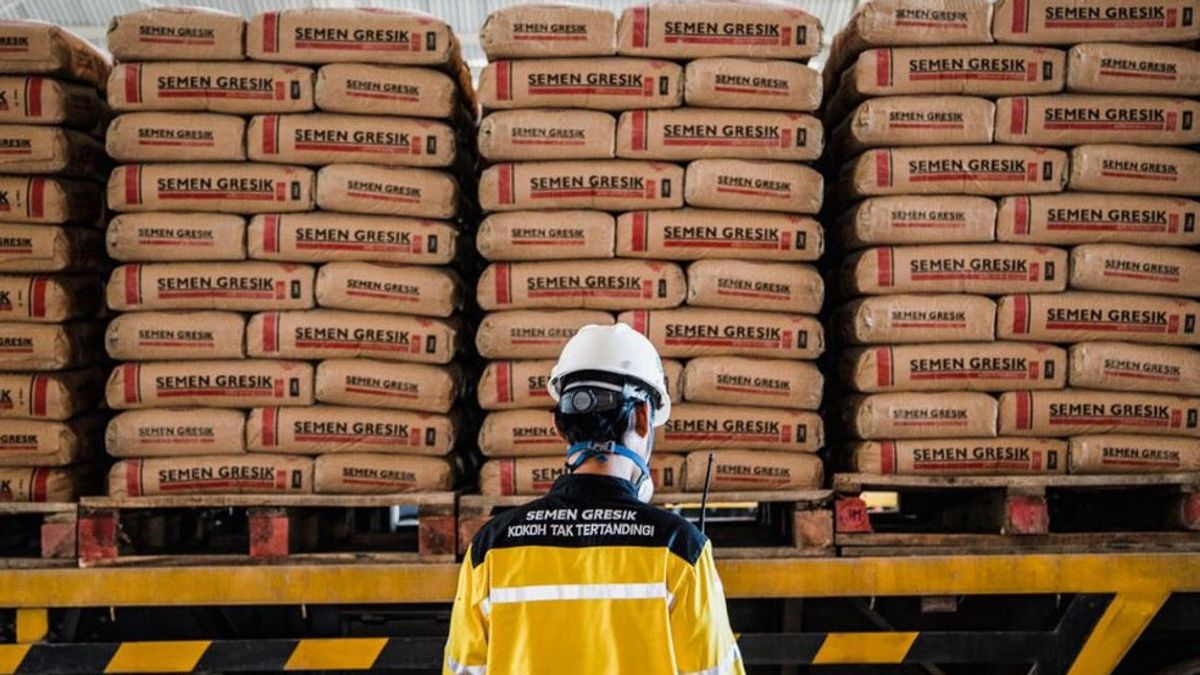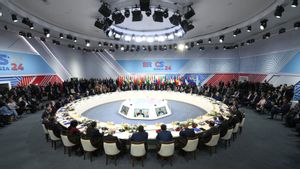JAKARTA - PT Semen Indonesia (Persero) Tbk posted a net profit in the first semester of 2020 of IDR612 billion. This figure grew 26.3 percent compared to the previous year which was valued at IDR485 billion.
Semen Indonesia Finance Director Doddy Sulasmono Diniawan said that although revenue decreased by 2 percent, with various efficiency programs, the cost of goods sold could decrease more than the decrease in income.
This efficiency resulted in the company's gross profit increasing by 3.2 percent to IDR4.81 trillion compared to semester I-2019 of IDR4.67 trillion. EBITDA or profit before tax also increased 9.6 percent to IDR 3.47 trillion from IDR 3.17 trillion in 2019.
"The financial burden has decreased as a result of cash flow management so that the company was able to reduce the amount of loans throughout the first semester of 2020. The company has also carried out a refinancing program in the second semester of 2019, so that a more competitive loan interest rate is obtained," said Doddy in a public expose. virtually in Jakarta, Wednesday 26 August.
Doddy explained that the increase in operational and financial performance was achieved through various strategic initiatives, both cost leadership through cost transformation programs, integration of various strategic functions between subsidiaries, and the synergy that was built with PT Solusi Bangun Indonesia Tbk.
Furthermore, Doddy said that the increasingly complex market challenges and the COVID-19 outbreak required the issuer with the code of SMGR to carry out efficient management of production utilization, efficient use of raw materials, ensure optimal supply chain process management, as well as tighten and improve discipline in cash flow management.
Meanwhile, Director of Marketing & Supply Chain for Semen Indonesia, Adi Munandir said that currently the cement industry in Indonesia has reached a high level of competition. The total national cement production capacity reached 112 million tons, while the national cement consumption in 2019 was 69.8 million tons consisting of retail consumption of 73 percent, and bulk cement consumption of 27 percent.
The world economic conditions in 2020 are severely affected by the COVID-19 pandemic which affects almost all countries in the world. Responding to these conditions, the government has taken a policy to allocate and reallocate additional budgets for handling the COVID-19 pandemic and a national economic recovery program.
"Infrastructure development is also affected, where some infrastructure projects experience slowdowns and delays. This also affects the condition of the cement industry where in the first semester of 2020, national cement consumption has decreased by 7.7 percent compared to the same period in 2019," Adi said.
Adi hopes that the national economy will recover soon. He believes that economic conditions can recover along with the government's efforts to overcome the COVID-19 outbreak and national strategic projects will roll back.
"Likewise, the private sector will resume its business expansion. The company will continue to support and succeed government programs, especially infrastructure development," Adi said.
Adi added that the company will also remain focused on improving synergies between units and subsidiaries, to create new opportunities in line with the company's new vision to become the largest company providing building material solutions in the region.
The company believes that the level of competition in the cement industry will still be high. However, with the established synergies, the company will have a greater competitive advantage than other players.
The English, Chinese, Japanese, Arabic, and French versions are automatically generated by the AI. So there may still be inaccuracies in translating, please always see Indonesian as our main language. (system supported by DigitalSiber.id)













